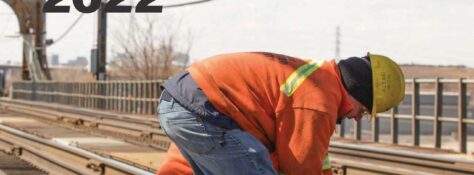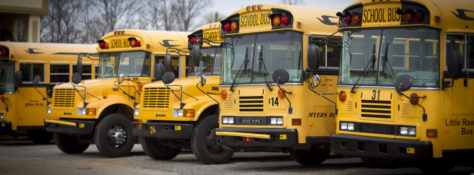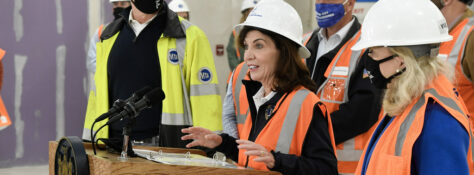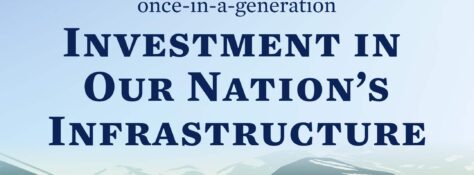We at the New York League of Conservation Voters Congratulate Governor Hochul for being the first duly elected woman to hold the office of Governor of New York State! Governor Hochul continues to make history as the first woman Governor of New York, but also by her bold support of the environment and is a national leader in the fight against climate change.
Learn MoreEach passing day is a struggle against the clock in the fight against climate change, with continuous emissions increasing the already-heavy strain on the ozone layer. According to the Environmental Protection Agency (EPA), in 2020, transportation made up 27% of the total United States greenhouse gas (GHG) emissions, taking the lead over electricity and industry, and contributing to already-dangerous rising temperatures by putting out carbon dioxide emissions from petroleum-based fuel options. The Clean Fuels NY Coalition, led by the New York League of Conservation Voters, was formed to showcase the widespread support for New York State to create a clean fuel standard (also known as a low-carbon fuel standard) and reduce GHG emissions from the transportation sector, which accounts for 35% of overall state emissions.
Learn MoreNYLCV has partnered with the Alliance for Clean Energy and several other environmental and industry stakeholders to push for the Governor to include legislation that allows for the direct sales of electric vehicles in her 30-day budget amendments.
Learn MoreRead more about The New York League of Conservation Voters (NYLCV) and NYLCV Education Fund (NYLCVEF) 2022 State Policy Agenda.
Learn MoreNews
Recently NYLCV and the NYC Clean School Bus Coalition held a virtual roundtable discussion in conjunction with NYCSBUS to speak about the importance of school bus electrification in New York City, especially within environmental justice neighborhoods and disadvantaged communities.
Learn MoreAs soon as Kathy Hochul was sworn in as Governor it became clear that she would be consciously implementing an environmentally-focused policy agenda. New York State (NYS) has some of the most ambitious goals in the country, outlined in the Climate Leadership and Community Protection Act (CLCPA), and Governor Hochul has shown that she is working to ensure that those goals are met. Now, at the three-month mark of her tenure, we review some of the exciting advancements in New York State’s fight against climate change.
Learn MoreThe deal secures an investment of $1.2 trillion, some of which will be used to fund new climate resilience projects, such as electric school buses, EV infrastructure, zero-low emission public transit, the removal of lead pipes & PFAS to improve drinking water, and pollution remediation. These investments are part of a comprehensive effort to both build resilience against the climate crisis and completely stop it in its tracks, and it marks the largest federal investment into infrastructure in U.S. history.
Learn MoreResearchers at Princeton University recently published their “Net Zero America,” offering five potential pathways charting different paces, priorities, and methods we should enact to reverse the damages of climate change.
Learn More



